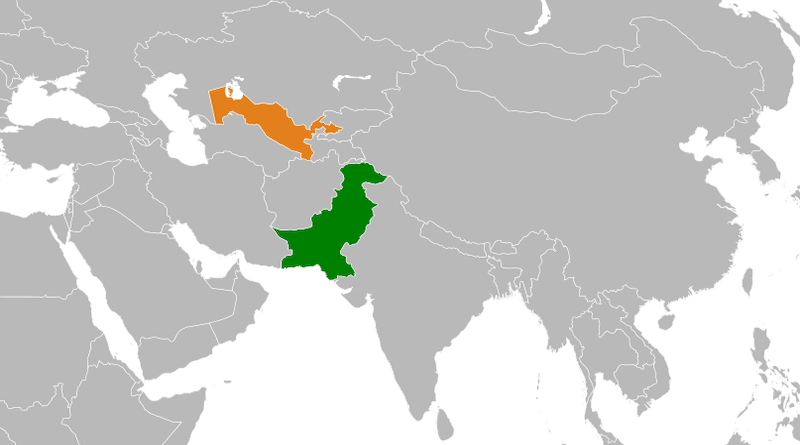Connectivity For Prosperity: Pakistan And Uzbekistan – OpEd
A Memorandum of Understanding (MoU) was signed between Pakistan and Uzbekistan on December 26, 2022, during the visit of Uzbek Deputy Prime Minister Khodjave Jamshid Abdukhakimovich to Islamabad. In a related development, Afghanistan and Uzbekistan have agreed to establish a cooperative market along the Afghan-Uzbek border. A collaborative plan for developing transit trade through Afghanistan has been agreed upon by Pakistan and Uzbekistan.
With the intention of bringing the commercial groups together, Pakistan has offered access to Central Asia via roads and railways. Additionally, the two countries decided to create a joint strategy for transit trade through Afghanistan and to raise concerns with the Afghan government on behalf of transporters from both countries. The two countries agreed to raise all pertinent issues with the Afghan authorities in order to resolve the difficulties transporters from Pakistan and Uzbekistan are now experiencing. Following the completion of a joint agenda that will be given to the Afghan side, this will be accomplished during a joint visit to Kabul that will be made in the final week of January 2023. For the region as a whole and Pakistan, Uzbekistan, and Afghanistan in particular, the plan will usher in a new era of peace and prosperity.
On December 27, 2022, the first phase of the Termez International Centre, which is located on the border between Afghanistan and Uzbekistan, was also opened. In order to foster economic and commercial cooperation between businesspeople from Afghanistan and Uzbekistan, a joint market has been established at a cost of roughly $75 million. Four thousand businesses, a hospital, a café, and a separate area for production and logistics are all present in the market. Now, Afghan nationals could visit this market without a visa .
In the first three months of 2023, the second section of the market will open. Both governments must take into account the large shared border markets between Pakistan and Afghanistan at Torkham and Chaman, which will serve to provide traders and businesses with generous returns.
Pakistan and Afghanistan have inked eight other agreements to advance their bilateral cooperation in other fields. The execution of the Uzbekistan-Pakistan Transit Trade Agreement was considered by both parties (AUPTT). In this regard, Uzbekistan will announce its regulations in February 2023. In accordance with the AUPTT, which was signed in July 2021, Uzbek trucks are permitted to transport commodities directly from Afghanistan to Pakistani seaports in Karachi, Gwadar, and Bin Qasim rather than having to reload them onto Pakistani trucks at the Afghanistan-Pakistan border and vice versa. A liberalisation of immigration laws and reciprocal acceptance of driver’s licences were also included in the deal.
Seaports in Pakistan appear to be favoured over Iranian ones that are already in operation. For instance, Uzbekistan uses the Iranian seaport of Bandar Abbas frequently and may get there via Turkmenistan. Although the port does have the requisite facilities, the ability of Uzbekistan to access new markets through Iran has been greatly constrained by sanctions.
A cooperative plan to facilitate transit trade through Afghanistan was agreed upon by both parties. A regional framework for transit and trade, as well as a shared finance mechanism for maintaining Afghanistan’s road infrastructure, must be developed.
The meeting’s goal was to discuss actions taken by the two nations and to create an action plan to increase trade turnover to $1 billion. The following items and a cooperative action plan suggested by Uzbekistan were agreed upon by the two parties.
Both parties concurred that business communities in both nations should begin awareness programmes. The Uzbek side also stated that their nation would join the World Trade Organization (WTO) in 2023. In this regard, the Pakistani side pledged its complete support.
The Pakistani side fully complied with the Uzbek side’s proposal for an off-dock facility for Uzbek cargo at Karachi and Gwadar. Additionally, both parties agreed to plan trade shows and create a plan for working together on e-commerce projects.
Both of the aforementioned steps are very heartening and encourage the Central Asian Republics to establish trade routes with Afghanistan and Pakistan via Afghanistan.
Uzbekistan got its first transit package across Taliban-run Afghanistan and Pakistan in April 2022. Uzbekistan, a landlocked nation, is indicating that it will prioritise a southern-focused strategy in order to build up viable alternative trading partners and, in doing so, lessen its crucial reliance on Russia and Iran as trade channels.
Access to Pakistani seaports has been the focal focus of Uzbekistan’s plan. Between Pakistan and Uzbekistan, a Preferential Trade Agreement (PTA) was signed in March 2022, encompassing 34 different goods. Afghanistan and its stability is crucial to these agreements because it is located between Uzbekistan and Pakistan. For Pakistan and Afghanistan, regional trade integration with Central Asia is advantageous.
However, a major barrier to trade between Pakistan and Central Asian Republics(CARs) has been the state of Afghanistan . Pakistan had difficulties boosting trade with CARs during Ashraf Ghani’s previous administration in Afghanistan. Due to the volatile situation in Afghanistan, Pakistan and the CARs are still having difficulty reducing trade restrictions and removing barriers after the Taliban took control of Afghanistan.
Afghanistan desperately needs economic stability, and these policies will bring prosperity to the Afghan people while also helping to curb the current uptick in terrorist activity. Trade between nations will benefit not only Afghanistan but also other nations in the area.
Author is PhD Scholar (SPIR-QAU). Currently she is working in Islamabad Policy Research Institution (IPRI) as Policy Researcher/Consultant. Her work has been published in local and International publications.

